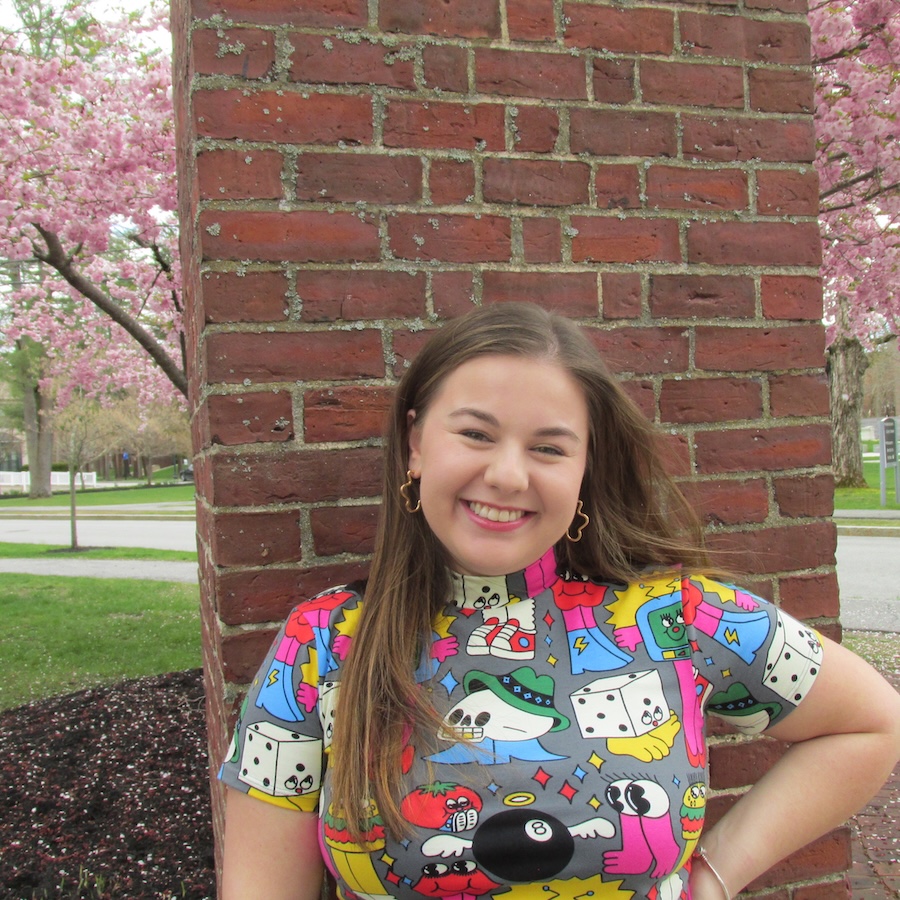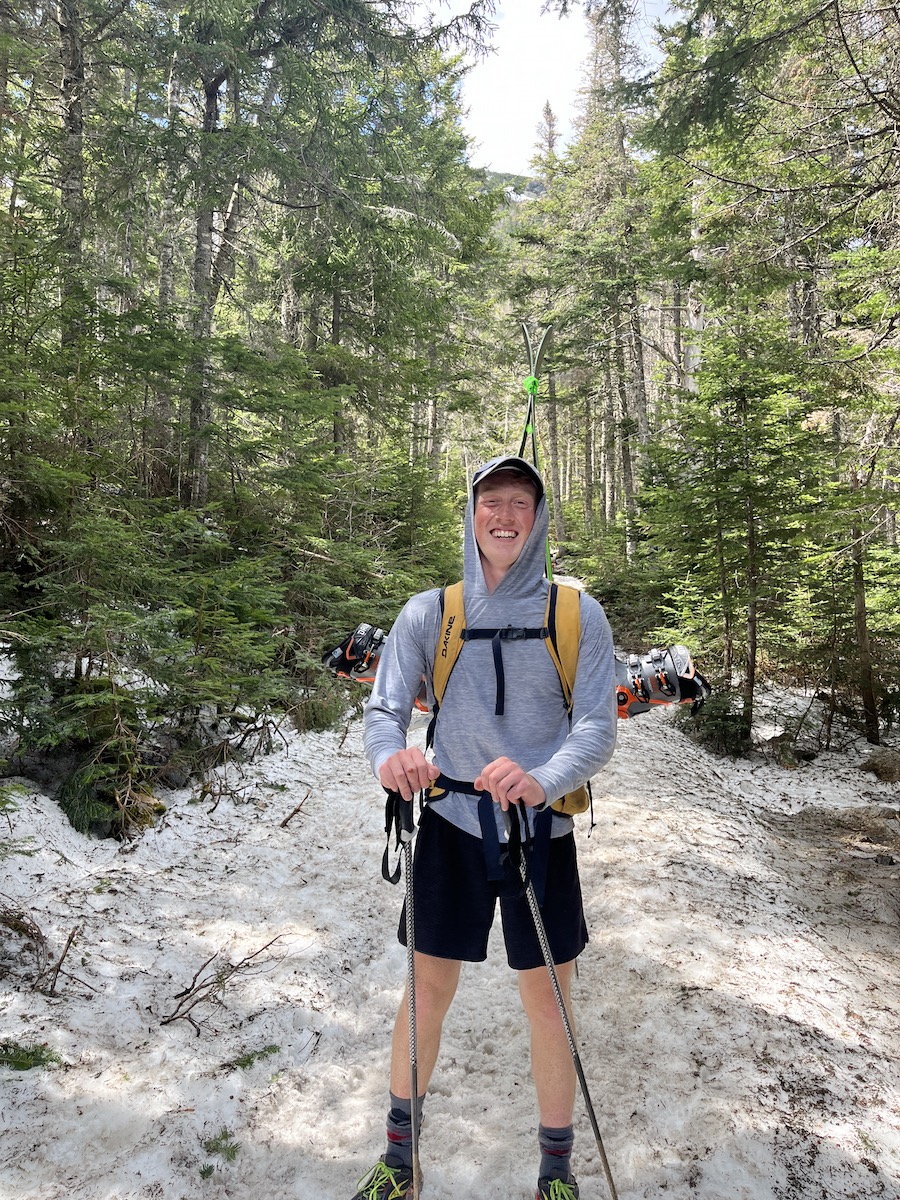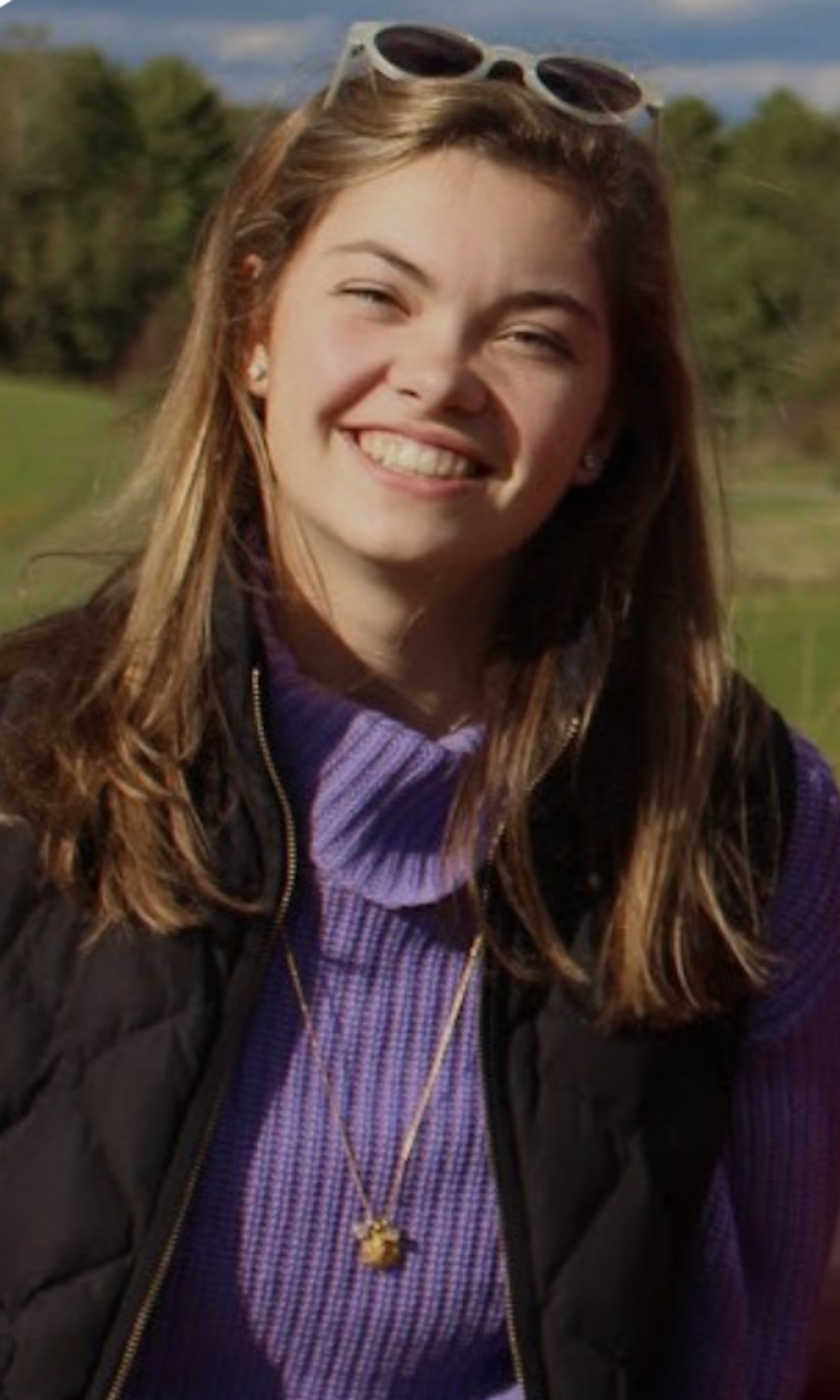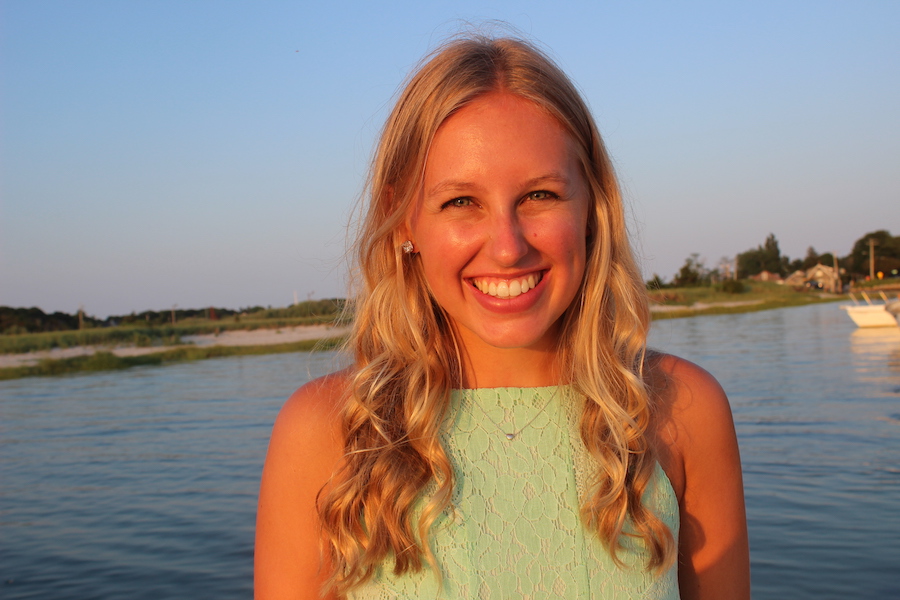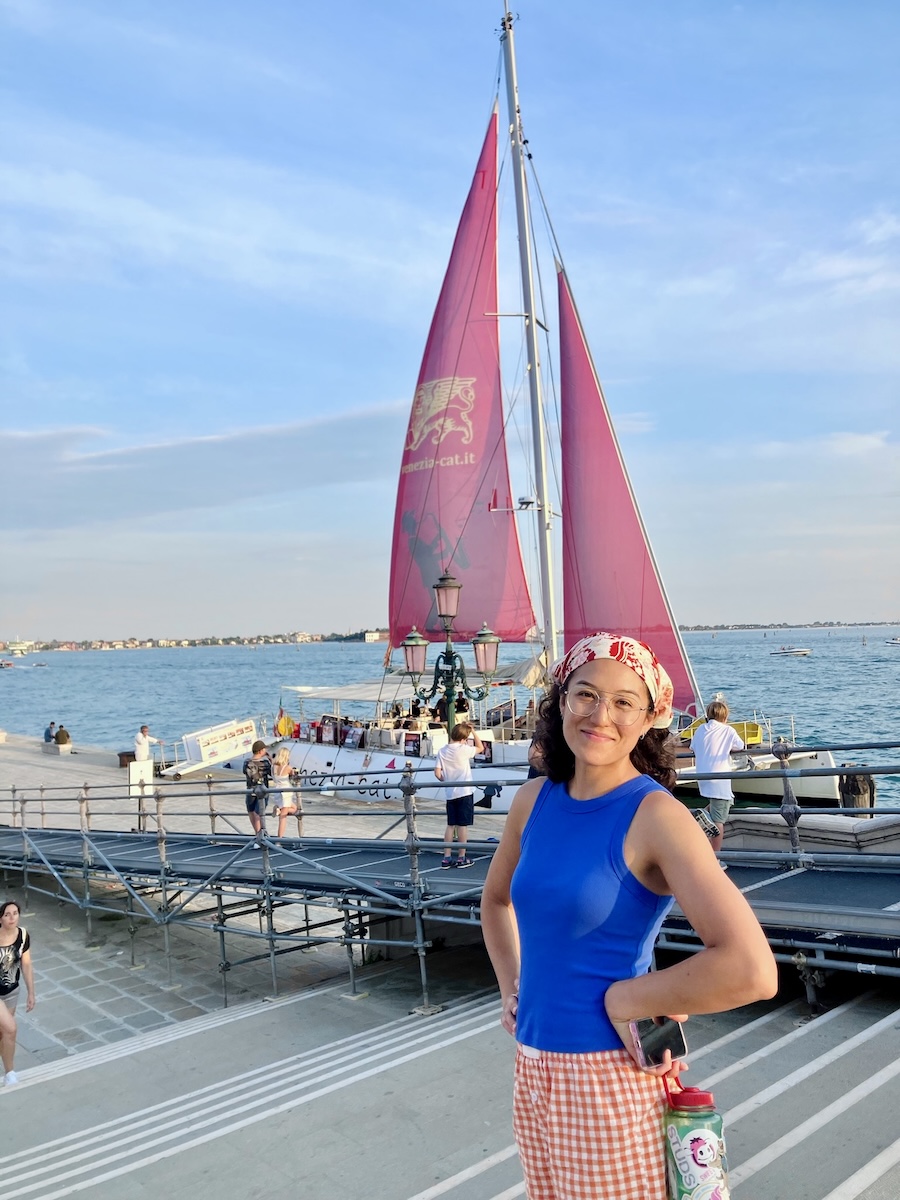What have you been up to since graduating from Bowdoin?
I graduated from Bowdoin in 2023 with a degree in education and gender, sexuality, and women’s studies, with a minor in English. I participated in Bowdoin Teacher Scholars the following year and had an incredible time teaching 7th grade in Brunswick, with a shoutout to my AMAZING mentor, Mari Matson. Last fall, I started a PhD program in English literature at the University of Texas at Austin. My research focuses on queer and Latina narratives in youth media, including teen TV, movies, and books, and I’m having the best time. At UT, I work and write for the Latinx Pop Lab and serve as a teaching assistant; I was recently honored with the award for Outstanding TA of the Year. On the side, I also work as a college essay consultant.
Why education?
I arrived at Bowdoin knowing I wanted to be a Bowdoin Teacher Scholar, and the department quickly became a second home for me. All the faculty and staff, Lynn, Cassie, Doris, Alison, and Chuck, were and still are today huge support systems for me. They were each fundamental to the way I developed my own teaching pedagogy and philosophy. Through both the formal pedagogical training and the many supported opportunities for teaching experience, I couldn’t have felt more prepared to enter a PhD program.
Are there any classes, professors, or experiences at Bowdoin that had a lasting impact on your interest in education?
I was so lucky to get to know each of the education department professors in different capacities through coursework, Learning Assistant positions, and working as the department assistant. I learned so much about myself as a teacher and about the field of education as a whole. Outside of Education, the GSWS department made me feel just as supported and set up for success. Associate Professor of Gender, Sexuality, and Women’s Studies Angel Matos is my rock!
What advice would you give to current students or recent graduates interested in working in education or education-adjacent fields?
There are so many opportunities for teaching at Bowdoin, so take advantage of them! Learning Assistant-ships and school placements were the best ways for me to determine what types of teaching suit me and what kind of teacher I am. The small cohorts and class sizes at Bowdoin definitely helped me make the most of the resources available. For those considering teaching or grad school, Bowdoin Teacher Scholars was fundamental in developing my teaching skills and style. The connections I made during that time are very dear to me. If any current students or recent graduates have questions, I’m happy to have my email address shared!
